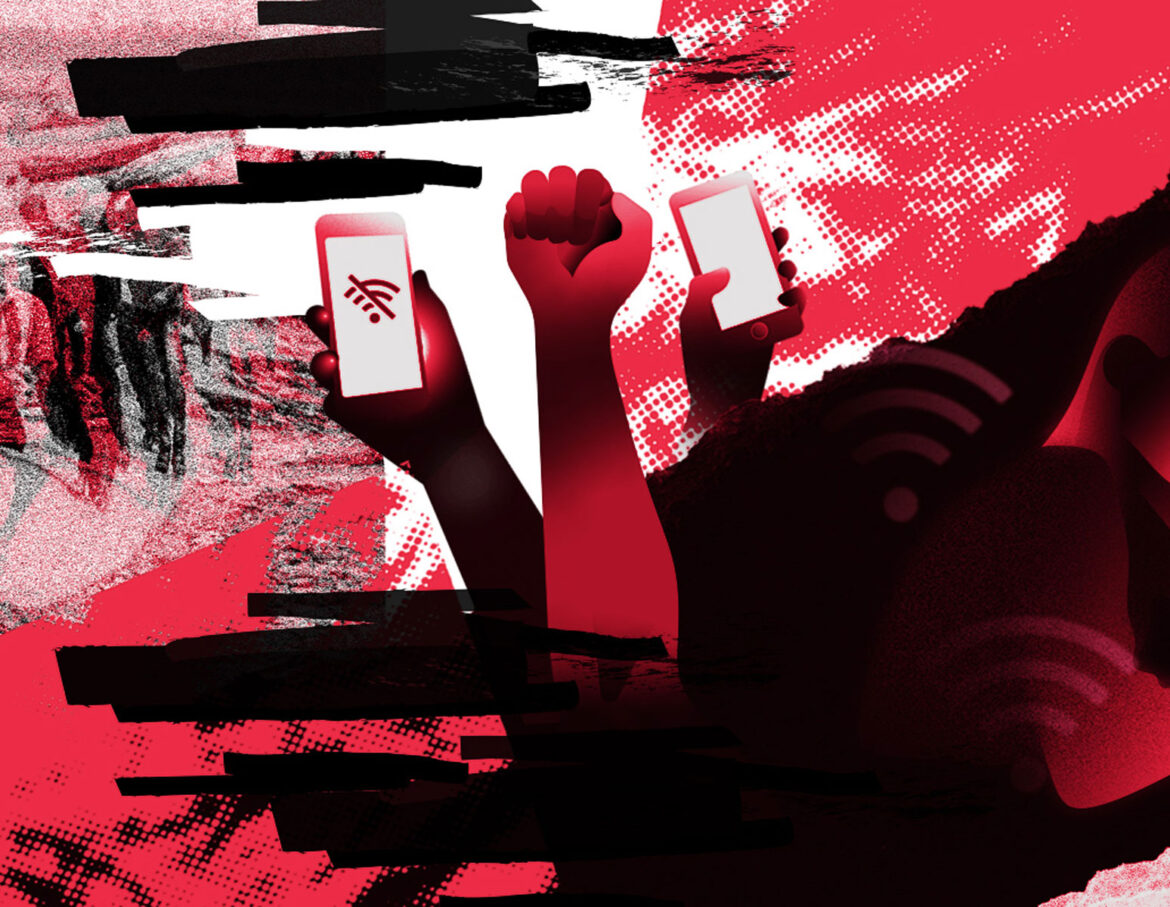The world saw an unprecedented surge in internet shutdowns in 2024, as governments increasingly relied on digital blackouts to suppress protests, control dissent, and tighten political grip, according to a new report by digital rights group Access Now.
The report, released by the #KeepItOn coalition, documented 296 internet shutdowns across 54 countries, surpassing the previous record of 283 shutdowns in 2023. Compared to 2022, when 40 countries experienced shutdowns, this marks a staggering 35% increase in the use of internet restrictions as a tool of control.
Among the worst offenders, Myanmar, India, and Pakistan topped the list. Myanmar, under military rule since a violent coup in 2021, imposed 85 shutdowns, the highest globally. India, despite being the world’s largest democracy, enforced 84 shutdowns, while Pakistan set a national record with 21 shutdowns in a single year. Russia also cracked down on digital access, implementing 19 shutdowns, including seven in occupied Ukraine.
Democracy in Decline: Internet Shutdowns as a Political Weapon
The report underscores a worrying trend: governments using internet shutdowns to stifle opposition and restrict online discourse. As 2024 ended, 47 shutdowns remained in effect into 2025, with 35 lasting over a year, signaling a shift from temporary measures to prolonged digital repression.
While armed conflict remained the leading cause of shutdowns, protest-related disruptions surged to a record high of 74 across 24 countries. Felicia Anthonio, Campaign Manager for #KeepItOn, warned that such tactics signal a “democratic recession” worldwide.
“The ruling powers’ disdain for people’s voices and movements is clear,” she told The Express Tribune. “The sharp rise in protest-related shutdowns reflects a dangerous shift toward authoritarianism.”
India: A Democracy with the Most Shutdowns
India, despite branding itself as the world’s largest democracy, recorded 855 shutdowns since 2016, far exceeding any other nation. A coalition of rights groups recently urged the European Commission to intervene, accusing Prime Minister Narendra Modi’s government of suppressing dissent through digital blackouts and online censorship.
“India’s leadership ambitions in AI and digital governance are incompatible with its record of internet shutdowns,” said Namrata Maheshwari, Senior Policy Counsel at Access Now. “No other democracy cuts off its people from connectivity year after year, without oversight or accountability.”
Pakistan’s Worst Year for Internet Shutdowns
Pakistan, which has enforced 77 internet shutdowns since 2016, saw its worst year yet in 2024. A report by Top10VPN.com estimated that internet restrictions cost the country $1.62 billion in economic losses.
“Pakistan’s 2024 shutdowns highlight a deepening erosion of democratic values,” said Shruti Narayan, Access Now’s Asia-Pacific Policy Counsel. She criticized mobile internet blackouts, VPN bans, and efforts to impose national firewalls, calling them “direct violations of fundamental rights.”
Platform Blocks: A New Front in Digital Censorship
Beyond full internet shutdowns, 2024 also saw a record 71 platform blocks across 35 countries, targeting social media and messaging services.
For the first time, X (formerly Twitter) became the most blocked platform worldwide, reflecting increased government efforts to control online narratives. Signal and TikTok also faced sharp rises in restrictions.
Felicia Anthonio condemned these measures, stating:
“Authorities justify platform blocks with various excuses, but none are legitimate. Blocking platforms amplifies misinformation, disrupts lives, and suppresses free expression.”
The Growing Global Digital Crackdown
Since 2016, Access Now has recorded 1,754 internet shutdowns worldwide, painting a grim picture of growing digital authoritarianism. The leading triggers remain protests (74 shutdowns), exams (16), and elections (12)—all events where access to information is critical.
As the world enters 2025, digital rights groups are calling for urgent action. “Even one shutdown is one too many,” states the report. “Governments must recognize that connectivity is a fundamental right—not a privilege to be taken away.”
### Will 2025 see a decline in internet shutdowns, or will digital repression continue to rise?



